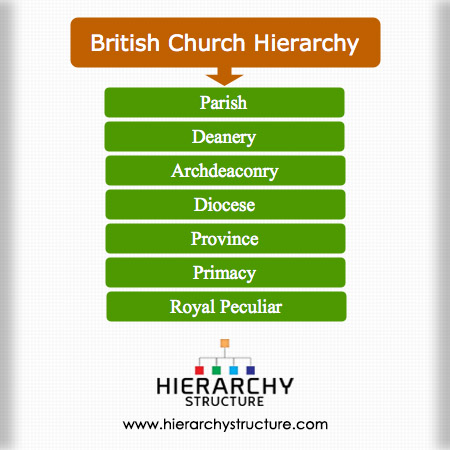The Church of England or the British Church is the mother church of widespread Anglican Communion and is a well-established, powerful Christian church in England. This church was established by the Gregorian mission in Kent led by St Augustine. The British Church is considered to be both Reformed and Catholic.
It is considered Catholic because it regards itself as an integral part of the universal church of Jesus Christ in an unbroken continuity, with the early apostolic church. It is known as reformed as it has been modified by the doctrine principles of the Protestant Church Reformation of the 16th century. The church is structured as follows (from the lowest level upwards):
Parish
This is the lowest rung in the British Church hierarchy. It is the local level comprising of one church building and is looked after by a parish priest who is a priest in charge, rector or vicar and the functioning of the parish is the responsibility of the Parochial Church Council (PCC). All vicars and rectors are ordained by patrons, who may be corporate bodies such as colleges, trusts or cathedrals, or by the private individuals, bishop or directly by the Crown. The rectors or vicars appoint the assistant clergy.
Deanery
This comprises of a couple parishes in a district. A Rural Dean or Area Dean looks after the Deanery. The parishes elect a representative to the deanery synod.
Archdeaconry
A number of deaneries make up an archdeaconry. Archdeaconry is under the jurisdiction of an Archdeacon.
Diocese
A number of archdeaconries make up a Diocese. This area is under the responsibility of a Diocesan Bishop. The diocesan bishop is assisted by one or more Suffragon Bishops. In very large dioceses, a measure was adopted to create “Episcopal areas”, in which, the diocesan bishop himself operates one area and appoints other “area bishops” to operate the other areas, known as mini-dioceses. The diocesan bishop delegates his powers to these area bishops. The bishops work together with an elected body of lay and representatives, who are known by Diocesan Synod, to operate the diocese.
Province
A number of dioceses make up a Province, which is under the responsibility of the Arch Bishop. The decision-making within the provinces is the responsibility of the General Synod.
Primacy
e., Church of England. The arch bishop has specific authority in his own province and he is also the “Primate of All England” (Canterbury) or “Primate of England” (York) and has the powers that extend over whole country England, for example he has the license to marry.
Royal Peculiar
The Royal peculiar comprises of a small number of churches associated with the Crown. These churches are outside the Episcopal jurisdiction church hierarchy though they conform to the rite of the churches.
The British Church is the established church in England, which means the Monarch is the Supreme Governor of the Church and theologically Lord Jesus is the head of the church and the church is very powerful and is entrusted with a number of official functions of the state.

